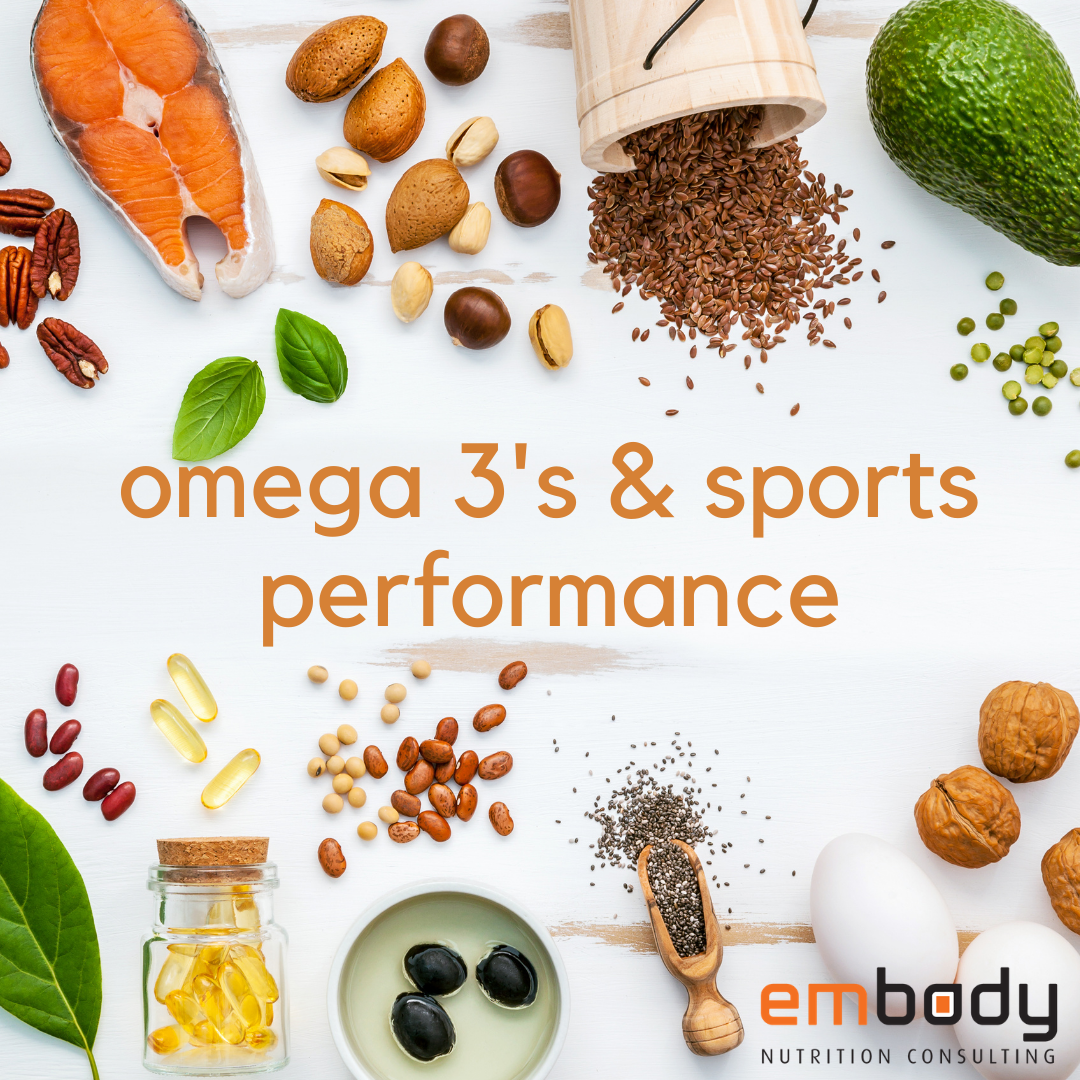Omega-3’s are polyunsaturated fats that are essential in our diet. This means they cannot be made by your body and need to be sourced from food or supplements.
Omega-3’s are necessary for health and have been shown to reduce the risk of chronic diseases and inflammation.
Types of Omega-3’s
ALA (alpha-linoleic acid)
ALA is the most common Omega-3 in most of our diets and are found in plant foods such as spinach, kale, walnuts, soybeans, and seeds such as flax, chia and hemp.
ALA is not biologically active in your body; this means that it must be converted into EPA or DHA to be used rather than being stored for energy. This process is inefficient and therefore, we should aim to consume Omega-3’s from a range of both plant and animal sources.
EPA (eicosapentaenoic acid)
EPA plays an important role in physiological processes and reducing inflammation and are commonly found in fatty fish, algae, eggs, and grass-fed animal products such as dairy and meats.
EPA has been proven to contribute to the management a range of medical conditions such as heart disease prevention, improving joint health, anti-inflammatory actions and reducing the level of fats in your blood.
It has also been used for treatment of mood disorders, vision loss and some cancers, however, evidence on the effect of EPA in these conditions is limited and inconclusive.
DHA (docosahexaenoic acid)
DHA is a structural component of your skin and retinas in your eyes and is important for brain development in childhood. DHA sources are the same as EPA; fatty fish, algae, eggs, and grass-fed animal products such as dairy and meats.
DHA is commonly used to maintain brain health in adults as well as preventing cognitive decline.
Why might Omega-3’s be used in sport?
Apart from the medical uses of Omega-3’s mentioned before, supplementation has been increasing in sport.
Research regarding omega-3 use in sport and exercise has mainly suggested observable improvements in amateurs and elderly people. The benefits of omega-3’s is dependent on the type of training and activity.
Strength/power
- Improved muscle protein synthesis, however, this has not been directly linked to muscle growth
- Enhanced neuromuscular function, such as muscle activation and force production
Endurance
- May help to reduce the oxygen cost of exercise to improve endurance capacity. This is because Omega-3’s act as vasodilators, increasing the flow of oxygen into the muscle during exercise
- Reduce oxygen consumption, heart rate and perceived exertion, however, these have not been directly linked to performance
Recovery
- May reduce muscle soreness (DOMs) and lessen oxidative damage to your muscles
Overall, research surrounding Omega-3’s and their use in sport and exercise is abundant. However, many of the findings from these studies have been inconclusive or can not be compared to each other due to varied study settings.
Supplements
The recommended daily intake of Omega-3’s is 250-500mg for adults, as well as suggestions from the Heart foundation to aim for 1 gram of plant-sourced omega-3. This can be met through 2-3 serves of oily fish per week with added ALA sources.
We should aim to meet our Omega-3 requirements through food sources. However, for those who don’t regularly eat fish or other sources, taking a fish oil supplement is a convenient way to increase your intake.
Things to consider when deciding on which product:
- Check the amount of omega-3’s, a standard serving usually contains 120mg DHA and 180mg EPA
- Check the ingredient list for any unnecessary fillers or artificial ingredients
- Decide which form of the product you would prefer such as capsules, liquids, and gummies
- You may also want to consider opting for a source with more sustainably caught smaller fish such as sardines or anchovies
- If you are vegan, vegetarian, or allergic to fish, flaxseed oil supplements are also available and contain ALA
Overall, the best sources of Omega-3’s come from our food and we should be aiming to consume a well-balanced diet from a variety of food sources. However, supplements are available if we are not quite meeting our requirements.
Most of the health benefits associated with Omega-3’s are related to reducing the risk of chronic diseases and inflammation. Due to emerging evidence, many people are now supplementing for the associated benefits in sport and exercise, however, more research is needed to really understand how these effect our performance.
Need more help with your nutrition? Contact us today to see how you can get started!

